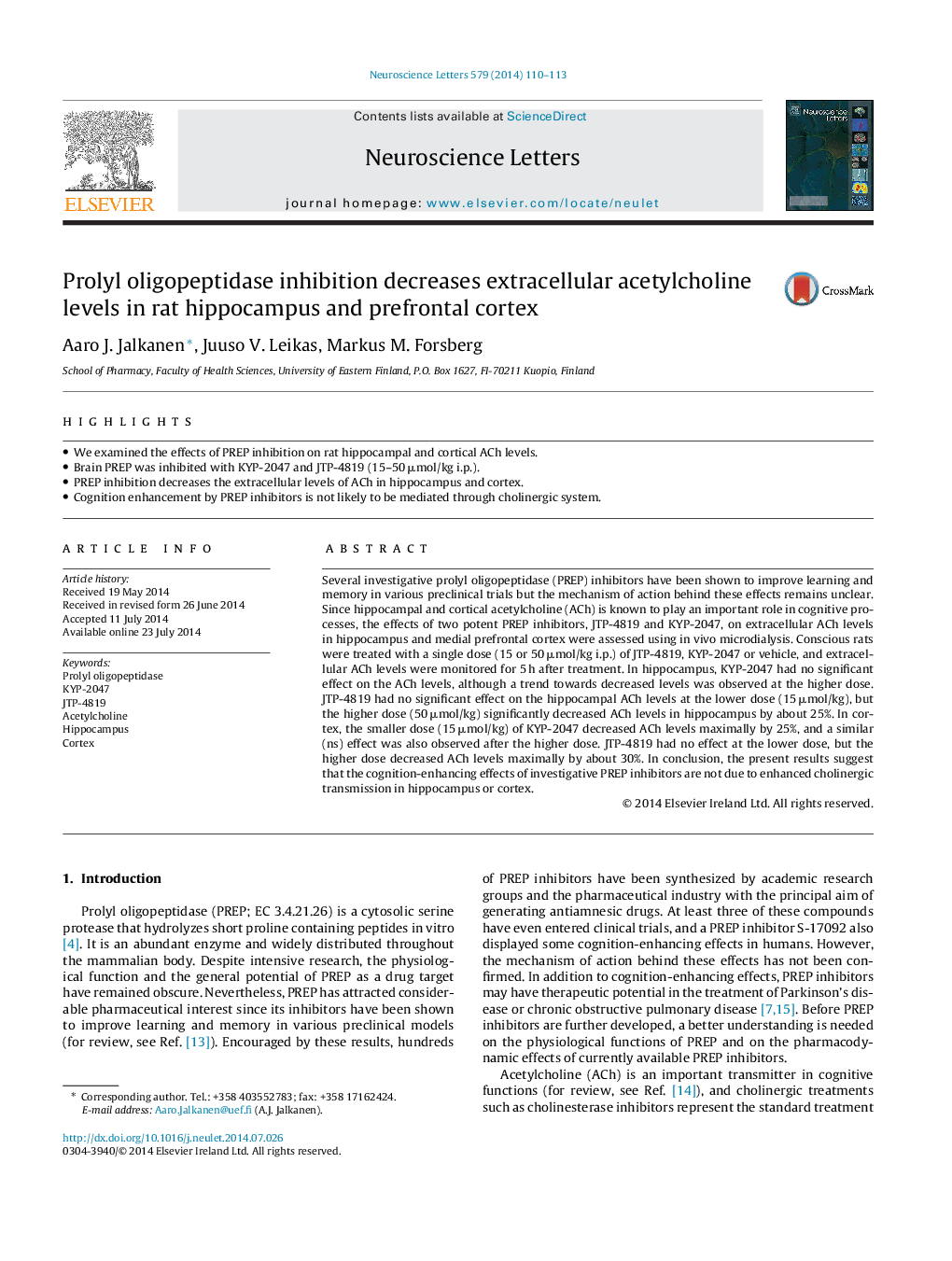| Article ID | Journal | Published Year | Pages | File Type |
|---|---|---|---|---|
| 6281729 | Neuroscience Letters | 2014 | 4 Pages |
Abstract
Several investigative prolyl oligopeptidase (PREP) inhibitors have been shown to improve learning and memory in various preclinical trials but the mechanism of action behind these effects remains unclear. Since hippocampal and cortical acetylcholine (ACh) is known to play an important role in cognitive processes, the effects of two potent PREP inhibitors, JTP-4819 and KYP-2047, on extracellular ACh levels in hippocampus and medial prefrontal cortex were assessed using in vivo microdialysis. Conscious rats were treated with a single dose (15 or 50 μmol/kg i.p.) of JTP-4819, KYP-2047 or vehicle, and extracellular ACh levels were monitored for 5 h after treatment. In hippocampus, KYP-2047 had no significant effect on the ACh levels, although a trend towards decreased levels was observed at the higher dose. JTP-4819 had no significant effect on the hippocampal ACh levels at the lower dose (15 μmol/kg), but the higher dose (50 μmol/kg) significantly decreased ACh levels in hippocampus by about 25%. In cortex, the smaller dose (15 μmol/kg) of KYP-2047 decreased ACh levels maximally by 25%, and a similar (ns) effect was also observed after the higher dose. JTP-4819 had no effect at the lower dose, but the higher dose decreased ACh levels maximally by about 30%. In conclusion, the present results suggest that the cognition-enhancing effects of investigative PREP inhibitors are not due to enhanced cholinergic transmission in hippocampus or cortex.
Related Topics
Life Sciences
Neuroscience
Neuroscience (General)
Authors
Aaro J. Jalkanen, Juuso V. Leikas, Markus M. Forsberg,
